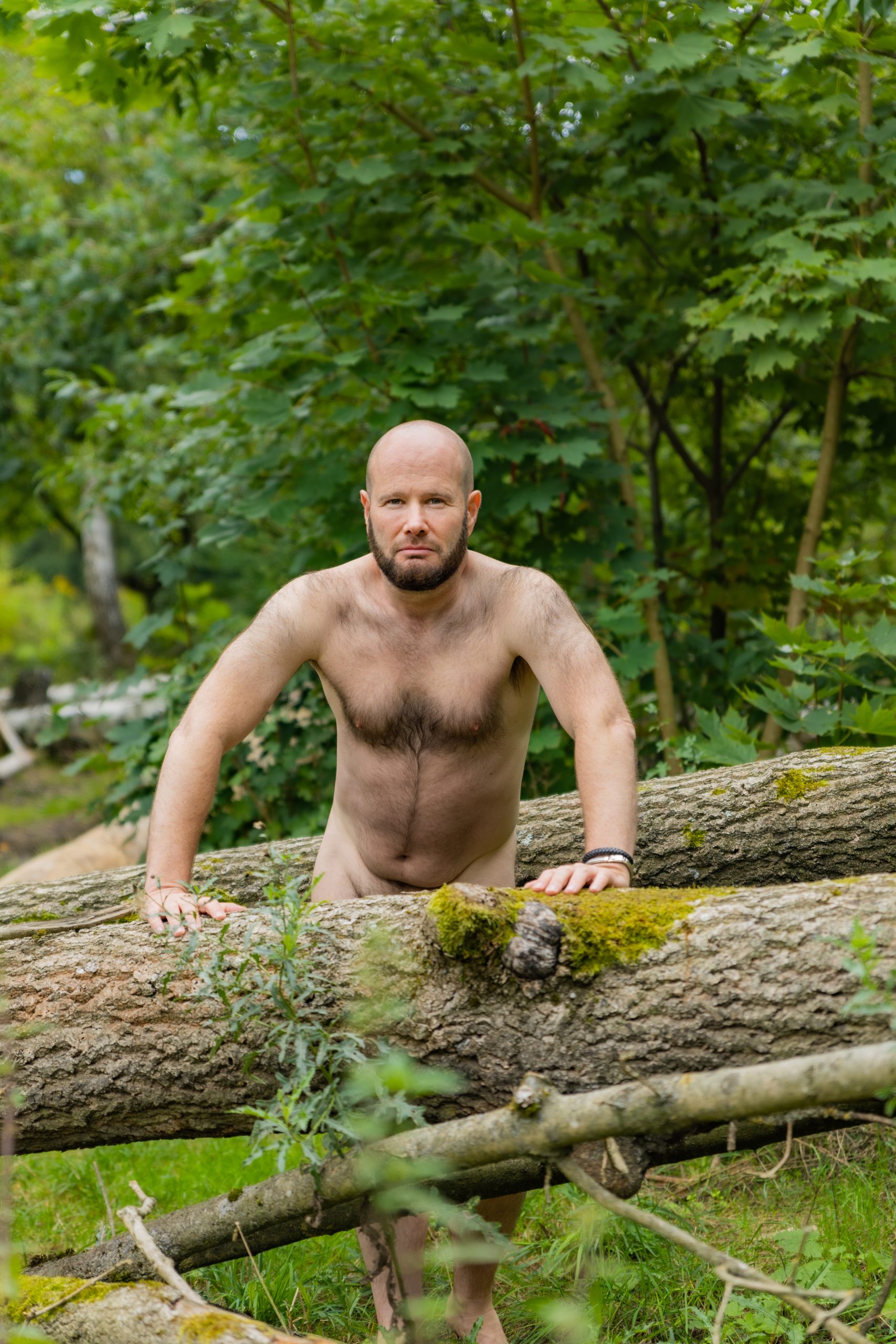‘I was born in Tel Aviv in the 70s to Dutch immigrant parents. My earliest memories are of long, sultry summers, the fragrance of lavender in the air and a feeling of unbridled happiness. But my parent’s marriage did not last long. My father stayed in Israel, while I returned to the Netherlands with my mother. Despite her love, the house that we moved into always felt empty. And from the outset, I have despised the proverbial ashen Dutch skies.
Every so often, a letter would arrive from my father. That was nice, but I don’t think I really missed him. I was more into imaginary figures. I was fascinated by the bittersweet stories that my grandpa told us about his large family, many members of which were murdered in the Holocaust: about a protective father and rugged uncles with sideburns and dazzling Semitic features. I wondered how it would have been to have lived with them.
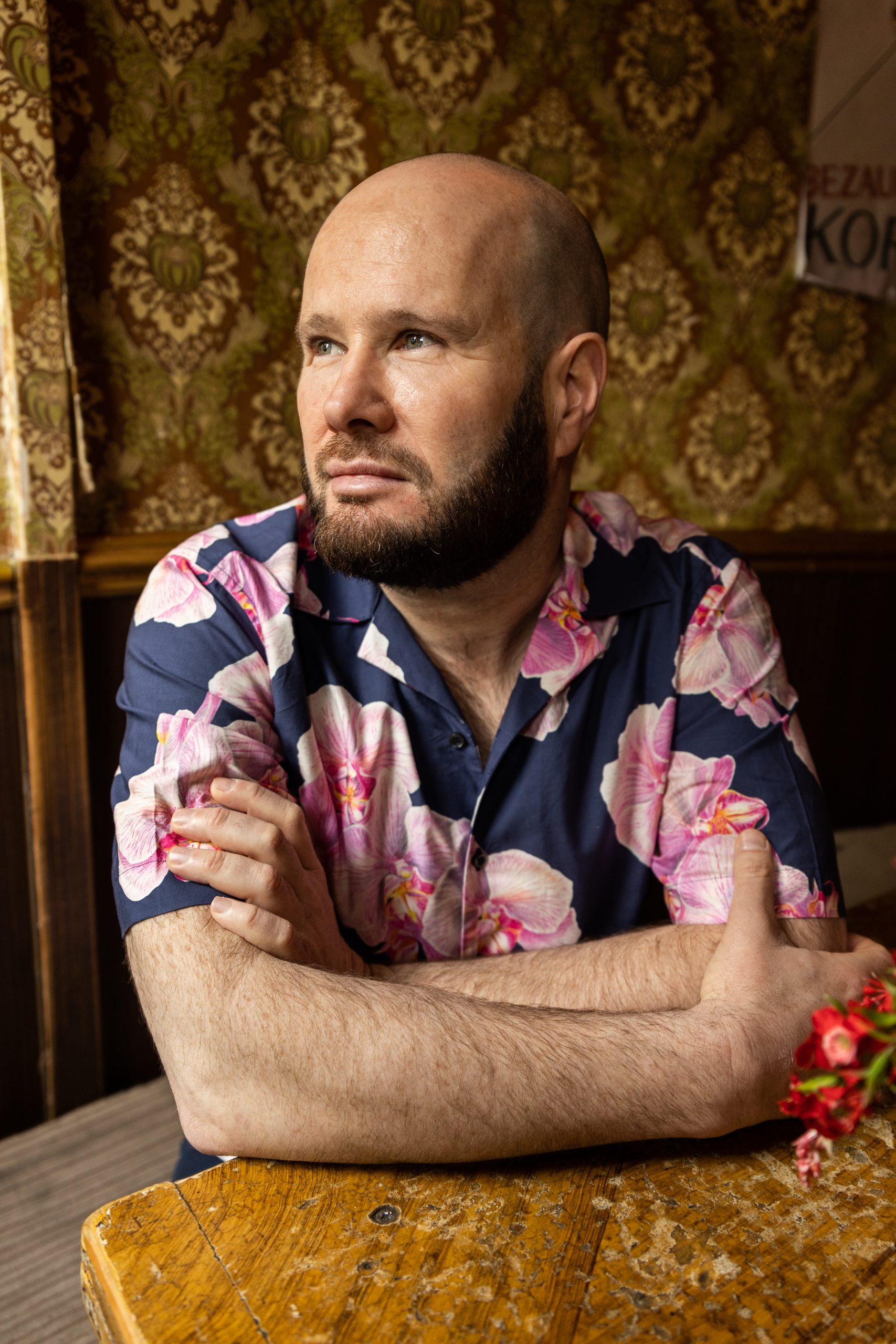
Image: Elvin Boer
I entered puberty. I had a best friend, a soulmate: Sietze. Every day, no matter the weather, we cycled together from our village to our high school in the city. We didn’t click with the city kids, and stuck together. In the first year, everyone made fun of Sietze. He was called a fag and I was guilty by association. The stress of puberty started to show on my body: food was my escape, and I transformed into a rather chubby nerd.
The worst thing about school was having to shower after physical education. The feigned nonchalance and the sideways glances. More than anywhere, this is where the male pecking order was determined for in the outside world. And as ever, I hid from it. I avoided the changing rooms and if I really had no choice, I made sure that a towel covered everything. Not only because I was embarrassed about how I looked – plump, circumcised – but mainly because I was terrified my body would give away my excitement about the other naked boys’ bodies.
‘More than anywhere, this is where the male pecking order was determined’
It couldn’t have been more different for Sietze. He moved increasingly to the foreground, and had every reason to do so. Within a couple of years, he had grown tall and lean. He was one of the first to get hair under his armpits, on his cheeks, jaw and above his mouth. His beautiful eyes appeared bluer than ever. He dared to adopt a punky, androgynous style and had swagger. He quickly became the school womaniser.
I became obsessed with our friendship and had an indescribable urge to constantly touch Sietze. I burned with shame and swore on everything that was dear to me that I would never express these feelings to a living soul. And yet I also did everything I could to keep Sietze for myself. But the more I tried, the further he moved away from me. By the time we graduated, we hardly spoke.
This experience became a blueprint for a large part of my adult life. While I came out without too much hassle at university, moved to New York to study Gender Studies, and back in Amsterdam, held my own as a queer activist, I couldn’t rid myself completely of the shame. I wasn’t ashamed of my sexuality, but rather of who I was.
In my twenties, and even my thirties, I used my body as an excuse to sideline myself. I did sometimes go on a night out, mostly with girlfriends – I didn’t have many male friends – but I had absolutely no inclination to start a conversation with a man. I felt unattractive, and had no idea how to flirt. When men gave me compliments, I never really believed them. I still felt like an outsider, this time in a world in which I should have felt at home.
‘The only way to survive was to distance myself from men and from everything to do with masculinity. To disqualify myself before they could’
I longed for actual contact with other men. At night, I dreamed of my ideal man – strong, protective, bearded and Jewish – but during the day, I made no effort to meet him. I felt like I was about to explode, and realised that something had to change dramatically for my life to be worth living. I jumped in the deep end, and started group therapy.
Therapy helped me to realise that the feelings of rejection by men early in my life – first my father, and later Sietze – had had an enormous impact on me. I had subconsciously grown up with the idea that I simply wasn’t worth loving, and that I had every reason to be ashamed of who I was. A feeling that was intensified by being queer. The only way to survive was to distance myself from men and from everything to do with masculinity. To not get involved with them, and to make myself invisible. To disqualify myself before they could.
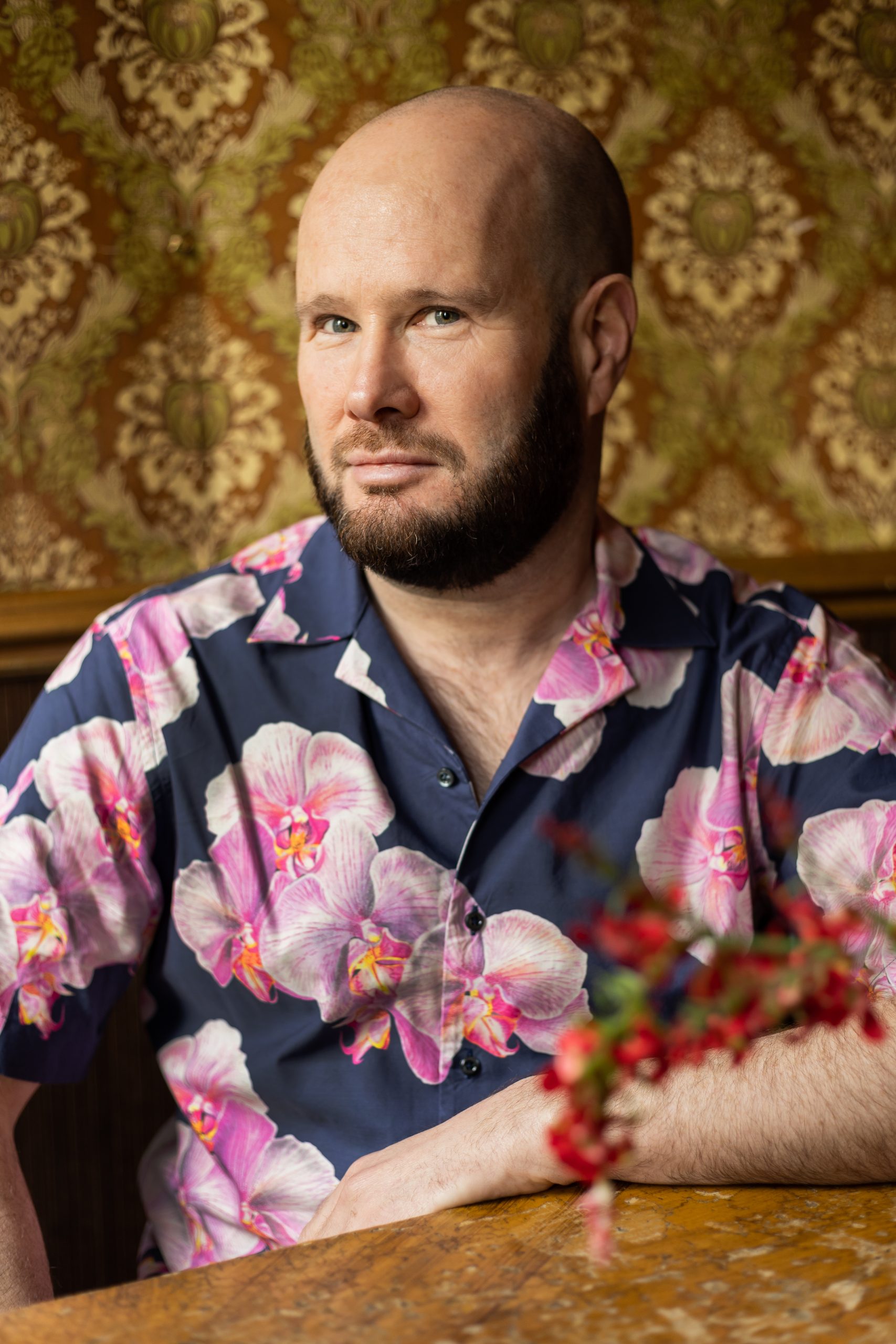
Image: Elvin Boer
For the first time in my life, I started talking to other men. Really talking. And listening. We talked about pain and shame. About our vulnerabilities and our desires. We were all different in the group – queer and straight, cis, non-binary and trans, old and young, white and of colour – and yet we often struggled with the same issues. Each in their own way, of course, but we were no longer alone.
‘With my beard it was as if I suddenly belonged to a secret society of men’
This was around the time that beards came into fashion. The phallic symbol that connoted a highly traditional, often toxic form of masculinity was now being warmly embraced. While I still had difficulty with typical man things, and proudly called myself non-binary, I also started growing a beard. It was a revelation. This may sound superficial, but it was as if I suddenly belonged to a secret society of men. I was always hearing “Bro, nice beard!” Seemingly out of the blue, men who were complete strangers eagerly complimented me, and our beards often resulted in a brotherly interaction. It wasn’t necessarily sexual – usually not at all – but I loved being able to present myself in this way and to pass as one of the guys. This was a completely new feeling, and I wanted to learn more.
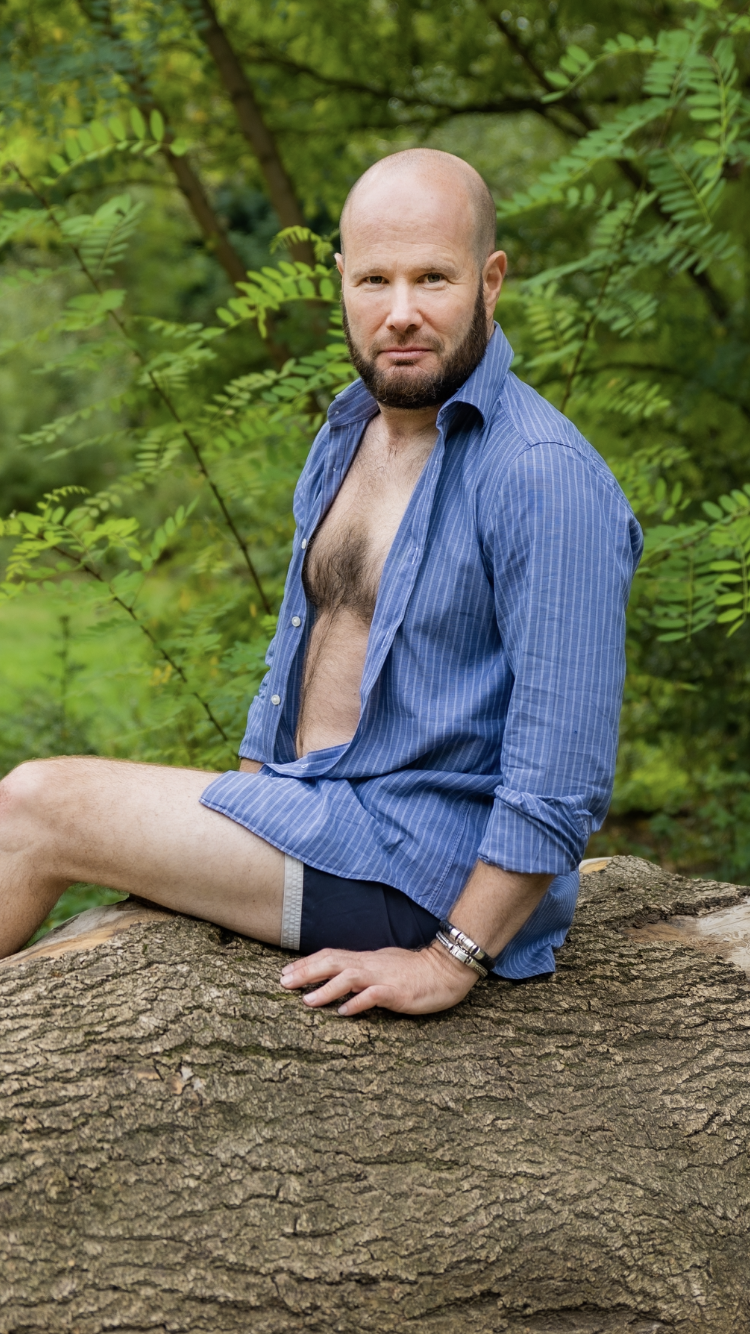
Image: Elvin Boer
I decided to investigate masculinity – in Berlin. It initially seemed absurd to find a home here in Germany, of all places, and yet I was certain that this was the right thing to do. I think it has to do with reclaiming a part of me, and with opening myself up to something that had felt alien for so long.
Here in Berlin, I interview men about their lives and their connection with themselves and other men. About the narratives and images with which they grew up and about the ways they have found to reclaim power to fashion their own identities. You can read a selection of these stories on this blog. There’s something of my own story in every interview. I don’t think I would have been able to tell my story without their stories. Their story is my story and my story is theirs.
***
I’m standing naked on the platform in the middle of Teufelssee. The place where I have listened to the stories of hundreds of men in recent years, and where I have made many new friends. I realise that I am truly blessed. The sun rises and once my body is sufficiently warmed, I jump into the water and swim to the bank.’
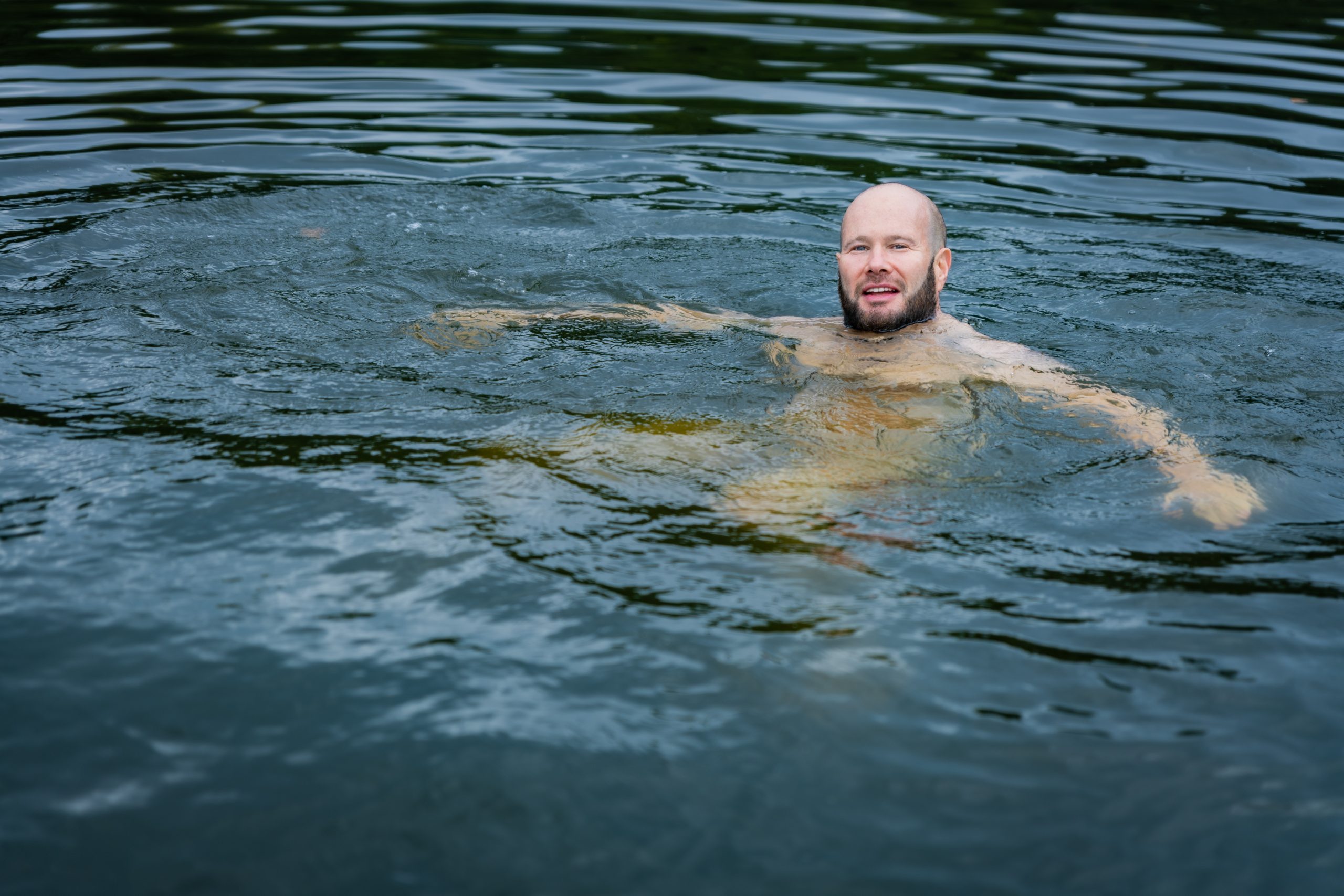

Image: Elvin Boer
